IET report says running cables below ground about four and a half times more expensive than overhead lines
Get Started for FREE
Sign up with Facebook Sign up with X
I don't have a Facebook or a X account

 Your new post is loading... Your new post is loading...
 Your new post is loading... Your new post is loading...
Conservationists fear fallout from president’s proclamation on fishing in federally protected area of Pacific Ocean
Graham Watson's insight:
A common access resource problem may occur as the result of President Trump's deregulation of fishing in the Pacific. The fear is that a lack of regulation will spur the 'Tragedy of the Commons' as the resource is over-used and depleted, generating negative externalities.
Duration of spills by water companies up on previous year, in data described by environment secretary as ‘disgraceful’
Graham Watson's insight:
The latest data from the Environment Agency reveals that Britain's water companies pumped raw sewage into the nation's streams, rivers and seas for nearly 4m hours last years. That's a lot of hours. and a lot of sewage. And a lot of negative externalities too.
However, is there an optimal level of sewage leaks? I hate to disappoint the environmentalists among you, but there clearly is, and it isn't zero either. You need to use marginalist principles to work out what this would be - and then you'd have the difficulty of trying to establish marginal costs and marginal benefits.
Airport says government requirement for 54% of passengers to get there on public transport is unworkable
Graham Watson's insight:
The planned expansion of Gatwick Airport has been approved with certain caveats, notably an increase in the number of passengers arriving at the airport via public transport to 54%.
The airport thinks this is impossible but will have to develop schemes to mitigate the environmental impact of more people arriving by private transport.
After fears £11m would be diverted to Treasury, money will be spent on restoring areas where penalties issued
Graham Watson's insight:
This article provides a fantastic example of hypothecation, with the £11m levied in fines on water companies for sewage spills, and the pollution of Britain's rivers, being directed back into restoring the marine ecosystems affected.
From
www
Despite opposition investors are still looking at deep-sea mining technology.
Graham Watson's insight:
Deep-sea mining. Blessing or curse? Source of valuable raw materials or generator of significant negative externalities? Or both? And if both, is there a net benefit from such activity?
The problem is that, like fishing, the world's sea bed is, for the most part, a common access resource, and in the absence of property rights this makes the over-exploitation of it inevitable. You might want to think about how there's a divergence between the marginal private cost of the mining companies and the marginal social cost that we all bear.
Big Manny and Bodalia will join forces in initiative after numbers of under-18s trying or using vapes soar
Graham Watson's insight:
There's part of me, a white 50-something male that objects to the government spending money on influencers - i.e. people stealing a living - urging people not to vape. However, is there an economic case for it?
Is the cost of 'employing' such people less than the benefits gained if they reduce the number of people who vape? I'm not convinced. I'm sure that there is imperfect information in the market but is this really the best nudge to correct it?
Report criticises ‘slow progress’ on industry regulation, amid record fish mortality and concerns over welfare and environmental pollution
Graham Watson's insight:
A parliamentary inquiry into the state of Scottish salmon farming has concluded that the sector is being poorly regulated and that this increase the risk of negative externalities being generated.
Salmon mortality is exceptionally high and there's evidence that some practices aren't environmentally-friendly in a sector which represents the economy's largest global export, directly employs 2,500 people and may involve another 10,000 in its supply chain.
The charge was seen as draconian, but new thinking is now essential. Look to the cities trying a range of bold ideas, says author Jonn Elledge
Graham Watson's insight:
John Elledge reflects on the fact that despite the congestion charge,. London remains the most congested city in Europe. It's an anomaly that would suggest that congestion charges don't work. I particularly like the final paragraph that highlights the divergence between MPB and MSB.
However, are there viable solutions to congestion other than congestion charges - it seems as though we've reached the stage where we have to change social attitudes to motoring and that's both costly and difficult to effect.
From
www
The scheme has faced resistance, including from President-elect Donald Trump.
Graham Watson's insight:
New York has become the first city in the US to adopt a congestion charge, although it's been opposed by President-elect Donald Trump. That alone, might make it worth of consideration and likely to have economic validity.
In short, it accepts that there are negative externalities from both air pollution and congestion, and the $9 daily charge represents an attempt to increase the private cost of motoring and internalise the externality.
The government says reforms will reduce gambling-related harm and raise funds to treat addiction.
Graham Watson's insight:
The government is stepping in to tighten the regulation of fixed odds betting terminals (FOBTs) by limiting the amount that can be wagered to £5 for over-25s and £2 for 18 to 24 year olds - although how that's going to be monitored is anyone's guess.
However, the idea is that by limiting the stakes on these machines, there should be fewer negative externalities generated by problem gambling, something that's also being addressed by a new gambling levy.
Visitors might pay a charge when staying overnight in Wales under plans to be outlined later.
Graham Watson's insight:
The idea of a tourism tax has been adopted in a number of European cities, and now it looks like it might be coming to Wales. It seems to make economic sense, in as much as tourists use local amenities and as economists that should be something that they pay for. In addition, in popular destinations, it's also the case that tourism generates negative externalities, and again this would imply that a tax is justifiable.
Gambling Commission figures show shock rise to 85,000 in number of young people suffering gambling harms
Graham Watson's insight:
What a day for those of a puritanical persuasion: another negative externalities story. This time Gambling Commission data suggests that the number of young people harmed by gambling addictions have risen to 85,000, or 1.5% of children.
So what's the solution? Another good question for discussion, and evaluation. g |
From
www
The tax would be applied to manufacturers of milk-based drinks and dairy-based substitutes, under the plans.
Graham Watson's insight:
It looks like the government are going to extend the sugar tax to include milkshakes and other dairy-based substitutes, like yoghurt drinks, to try and reduce sugar consumption and tackle obesity.
Manufacturers will complain but its interesting to note that only 89% of soft drinks are now subject to the sugar tax because of the reformulation of these drinks and it's thought that this will be the main way that sugar consumption is reduced.
Analysis published by non-profit group Oceana comes amid fears over human health risks posed by the spread of microplastics
Graham Watson's insight:
Non-profit group Oceana have identified Coca-Cola as the world's largest branded polluter estimating that by 2030, there will be 602 million kilograms per year of Coca-Cola branded waste in the world's oceans. Wow!
One for Old Edwardian, James Quincey to ponder...
New powers mean regulator can ban payouts under criteria of Ofwat’s choosing
Graham Watson's insight:
An important point to remember when looking at how industries are regulated is the fact that the regulator is almost always the second mover. The industry does something, it has adverse effects and only then does the regulator act.
Shouldn't this sort of thing have been thought of earlier? You would have thought so, but the prospect of fining executives no shifts the goalposts and seems to better align incentives to reduce chance of environmental damage, if this is what the powers are going to be used for.
However, I also worry about the phrase "criteria of OFWAT's choosing"; for me, it's too vague and creates uncertainty, which might reduce investment in the sector, or, alternatively, see some activities being over-consumed.
The relationship between cigarette prices and smoking rates appears far more complex than the simplistic models on which tax policy is based
Graham Watson's insight:
Thank you to the excellent Chris Snowden for flagging up this article in the Guardian, ideal Internal Assessment fodder for IB. It flags up an unintended consequence of higher taxes on tobacco noting that the Australian government's more aggressive approach has seen a significant increase in the size of the shadow economy, and it's something that's seemingly being ignored by successive governments keen to be seen to be doing the 'right thing'.
Remember: fine words butter no parsnips, my friends.
Levels of deadly pollutants have dropped, with significant improvements in capital’s most deprived areas
Graham Watson's insight:
The latest data is being heralded as an endorsement of the decision to expand the ULEZ - the area where London's congestion charge applies - with levels of air pollution down, especially in some of the most deprived areas. In fact, London's air quality is improving faster than in much of the rest of the country.
However, whilst I'm broadly in favour of this - and keen to see improvements in public transport across the country - this alone doesn't demonstrate that there's been a welfare improvement because there's no mention of the costs of the measure. That said, because 97% of cars are exempt from the charge, it would appear likely that welfare has improved.
Researchers say data strengthens case for holding firms to account for their contribution to climate crisis
Graham Watson's insight:
As economists we're always suggesting that one of the best ways of internalising negative externalities is Pigouvian taxes - making the polluter pay. So does this report imply that we should be taxing some of the world's largest fossil fuel firms more?
Certainly the Carbon Majors data is a stark reminder of the degree to which a relatively small number of economic agents contribute to carbon emissions, and it's easier to target a small group of producers than it would be a larger group of either firms or individuals.
From
www
Low-income families are being priced out of being able to afford to eat healthily, a charity warns.
Graham Watson's insight:
The fact that healthy food, such as fruit and vegetables, costs twice the amount that heavily-processed foods does, has interesting economic implications. The fact that such foods are luxury goods, with a YED greater than 1 shouldn't come as a surprise.
However, it should give cause for concern, not least in the fight against the negative externalities of a bad diet, not least in the form of obesity. It seems to imply that access to healthy options and education to encourage healthier choice have a part to play but might the government go as far as to consider offering vouchers to low-income consumers that are only redeemable for fruit and vegetables?
Other factors to consider might be the availability of healthier options, and the fact that low income families might work longer hours, or be less able to travel longer distances to buy healthier food. I'm not saying that any one of these suggestions is necessarily going to solve the problem; it's clearly multi-faceted.
I'm not even saying that they're all good economics - however, any consideration of appropriate policy solutions would need to evaluate the case for and case against.
The truck company will also be banned from importing its diesel engines into the US for five years.
Graham Watson's insight:
It's remarkable to think that the emissions scandals rumble on - this time it's a Toyota subsidiary, Hino Motors, deceiving regulators about the emissions produced by its diesel engines.
Yes, the company are fined $1.6bn, although I suspect the negative externalities generated are greater than that. However, why are the individuals involved charged with fraud and facing jail? I'm amazed by this sort of thing...
Stays from July next year will be subject to 5% visitor levy in first mandatory city-wide scheme in UK
Graham Watson's insight:
Edinburgh is going to be the first city-wide UK tourist tax, with a mandatory levy of 5% of the value of your stay to account for the negative externalities of mass tourism. You might discuss the form that these externalities take and whether or not such an intervention is appropriate, as well as considering other approaches to dealing with this problem, and other cities that have also adopted this sort of measure.
One thing is clear: it's going to increase the cost of attending the Edinburgh Festival - so my advice would be to stay in Glasgow and get the train across.
Covering an area about the size of five soccer fields, a massive landfill in the Philippine province of Rizal symbolizes the plastic waste crisis in the country.
Graham Watson's insight:
This Reuters clip looks at continued problems with plastic pollution with a massive landfill site in the Phillipines indicating the extent of plastic waste. In this case, it's being attributed to single use sachets, intended to preserve a single serving of something such as coffee, but which are widely used.
Money to be used to fund education and treatment of gambling harms in plans to be unveiled as soon as this week
Graham Watson's insight:
It seems as though the Labour government has tired of the notion of alllowing gambling companies to self-regulate and choose how much to donate to tackle the negative externalities of problem gambling and has decided to enforce an annual £100m levy on the companies.
The intervention, which seems likely to demand 1% of bookmakers' gambling yield each year would mark a sea change in the way the sector contributes to tackling the issue.
US suffered greatest economic losses, report commissioned by International Chamber of Commerce finds, followed by China and India
Graham Watson's insight:
Another market failure is covered by this article which looks at the costs of extreme weather to the global economy. It's remarkable to think that such events have cost $2tn over the past decade, and $451bn in the last two years alone. According to the article "US suffered the greatest economic losses over the 10-year period, at $935bn, followed by China at $268bn and India at $112bn", however, the reality is that in per capita terms its smaller nations that have the highest costs per person. |



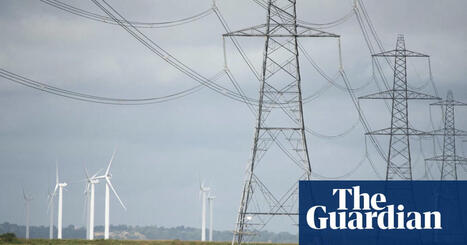


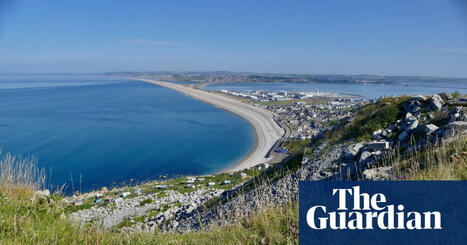




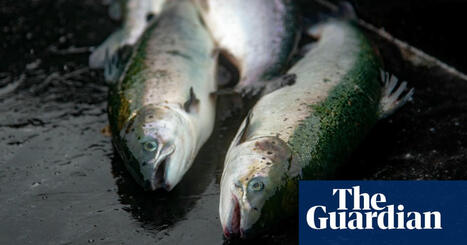






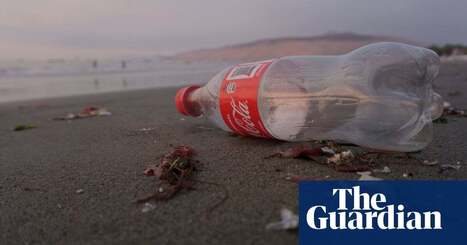
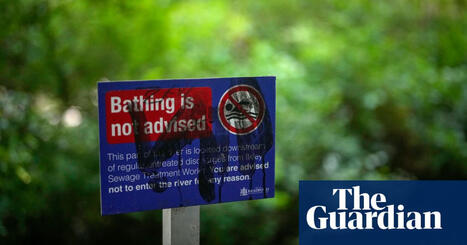




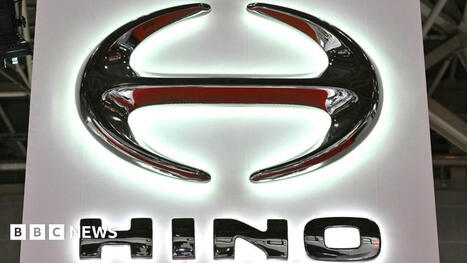

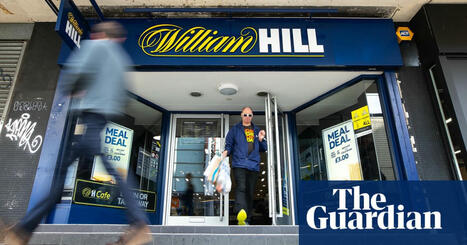






Lots of lovely Microeconomics here - opportunity cost, renewable energy and energy security for a start. However, to what extent do pylons generate negative externalities? My impression is that people who say this don't have much of a case.